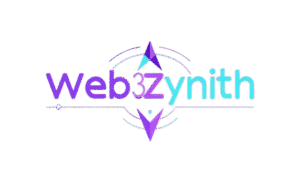Choosing the right Layer-1 blockchain often comes down to weighing speed, security, ease of development, and maturity. Solana has already carved out a reputation for blazing speed and mass adoption, while Aptos enters the ring promising breakthrough scalability, safety-first design, and fresh innovation. Whether you’re building an NFT marketplace, DeFi protocol, or mission-critical app, understanding these platforms can guide your developer journey.
1. Foundational Philosophy & Background
Solana, founded by Anatoly Yakovenko, is built around raw performance. Its unique Proof of History (PoH) coupled with Proof-of-Stake (PoS) enables high throughput and low latency—designed to support DeFi, gaming, and Web3 at scale. Although its ecosystem is robust, network outages and decentralization concerns persist.(chain.compare, blog.tothemoon.com, ZebPay, Reddit)
Aptos, spearheaded by Avery Ching and Mo Shaikh—veterans of Meta’s Diem project—builds around a different vision. It prioritizes security, scalability, and developer ergonomics, using the Move language and a scalable Block-STM execution engine with parallel execution. It’s still new, but with promising backing and tooling.(Rise In, Velvetech, Reddit)
2. Performance & Throughput
| Metric | Solana | Aptos |
|---|---|---|
| Theoretical TPS | Up to 65,000 (some claims far higher) | Up to 160,000 via Block-STM parallel execution |
| Practical TPS | ~1,133 TPS on average | ~61.7 TPS observed in real usage |
| Max TPS (burst) | ~2,900 TPS | ~12,933 TPS |
| Block Time | ~0.4 seconds | ~4 seconds |
| Finality | ~0.4–0.6 sec; real-world ~10s | ~0.8 sec per benchmarks; near instant claimed |
| Avg. Tx Fee | ~$0.00025 | ~$0.0000012 |
- Solana claims massive throughput, but real-world figures show averages around ~1,100 TPS, with bursts up to ~2,900.(Chainspect, Webopedia, Medium, Reddit)
- Aptos boasts up to 160,000 TPS in benchmarks using Block-STM, with real usage around ~62 TPS.(chain.compare, blog.tothemoon.com, Webopedia)
- Latency: Solana’s block time is ~0.4s, while Aptos clocks around 4s per block, though Aptos claims near-instant finality.(chain.compare, Markaicode, Chainspect)
Solana shines in real-world, low-latency speed; Aptos aims for future scalability through architectural parallelism.
3. Consensus & Execution Architecture
Solana’s Proof of History + PoS
Solana’s PoH acts as a decentralized clock, enabling efficient transaction ordering and very fast confirmation. Paired with PoS (via Tower BFT), it’s optimized for speed—though decentralization and outages remain concerns.(Rise In, Medium, Reddit)
Aptos’s BFT & Block-STM
Aptos uses AptosBFT, derived from HotStuff, offering robust Byzantine Fault Tolerance and validator rotation. Its Block-STM execution engine enables parallel transaction processing, dramatically increasing theoretical throughput and conflict management.(Rise In, arXiv, Velvetech)
Solana prioritizes immediate responsiveness, while Aptos pursues scalable architecture with security-first consensus.
4. Smart Contracts & Developer Tooling
Solana
- Development in Rust or C—powerful, safe, but higher learning curve.
- Anchor framework simplifies smart contract writing and deployment.
- Ecosystem includes DeFi, NFT, gaming, with large developer inflow.(Rise In, chain.compare, arXiv, Reddit)
Aptos
- Uses Move, a safety-focused language from Diem, designed to avoid common vulnerabilities.
- Provides developer-friendly tooling and documentation, though ecosystem is still emerging.(Rise In, Velvetech, Reddit)
- Already landing institutional use cases, such as tokenized assets by Securitize using Aptos alongside other chains via Wormhole.(Reddit)
Solana offers maturity and tooling, while Aptos leans into safety, future-readiness, and fresh developer experiences.
5. Ecosystem & Developer Adoption
Solana:
- Among top chains for new developers—the blockchain of choice for ~20% of incoming devs in 2024.(Reddit)
- Mature ecosystem spanning NFTs, DeFi, Web3, and strategic partnerships (e.g., with Visa pilot projects).(Reddit)
- Reliability concerns due to past outages still echo within developer circles.(ZebPay, blog.tothemoon.com)
Aptos:
- Newer but supported by Diem-veteran team, strong institutional interest.
- Gaining real-world traction—launching tokenized credit fund via Securitize signifies growing use beyond hype.(Reddit)
In short: Solana is vast and accessible; Aptos is promising and quickly catching up.
6. Security & Resilience
Solana:
- High performance comes with trade-offs; multiple outages and congestion events have tested its stability.(blog.tothemoon.com, ZebPay)
- Security study shows that developers often miss vulnerabilities; yet frameworks like Anchor help keep real-world exploit rates low (~<0.3%).(arXiv)
Aptos:
- Strong safety narrative due to Move language and BFT backbone.
- No major security incidents to date—but still needs long-term stress testing.(Rise In, blog.tothemoon.com)
7. Developer Profiles: Choosing Your Path
Choose Solana if you:
- Need fast, low-latency transactions (e.g., DeFi, gaming, high-frequency use).
- Want to tap into a large, active ecosystem with solid tooling.
- Can manage occasional stability and decentralization trade-offs.
Choose Aptos if you:
- Prioritize long-term scalability, safety, and architectural soundness.
- Value emerging tooling and want early-mover advantage in a growing ecosystem.
- Seek to build secure, parallel-execution applications with future potential.
Final Thoughts
Solana is battle-tested, developer-rich, and blazing fast—but comes with known stability and decentralization trade-offs. Aptos, though younger, brings fresh architecture, security-first design, and technical promise built on parallel execution with Move and BFT consensus.
Both chains embody the evolutionary path of modern blockchains—each shines depending on what matters most to your project: immediate velocity and ecosystem maturity (Solana), or scalable, safe innovation and future readiness (Aptos).
Sources
- Solana architecture, speed, outages, ecosystem, developer adoption: (Rise In, blog.tothemoon.com, Webopedia, Medium, ZebPay, Reddit, arXiv)
- Aptos architecture, Move language, performance, tooling, security, institutional use: (Rise In, chain.compare, blog.tothemoon.com, Velvetech, arXiv, Reddit)
Let me know if you’d like a deeper dive into developer onboarding, benchmarks, or ecosystem case studies—I’d be happy to help!



























